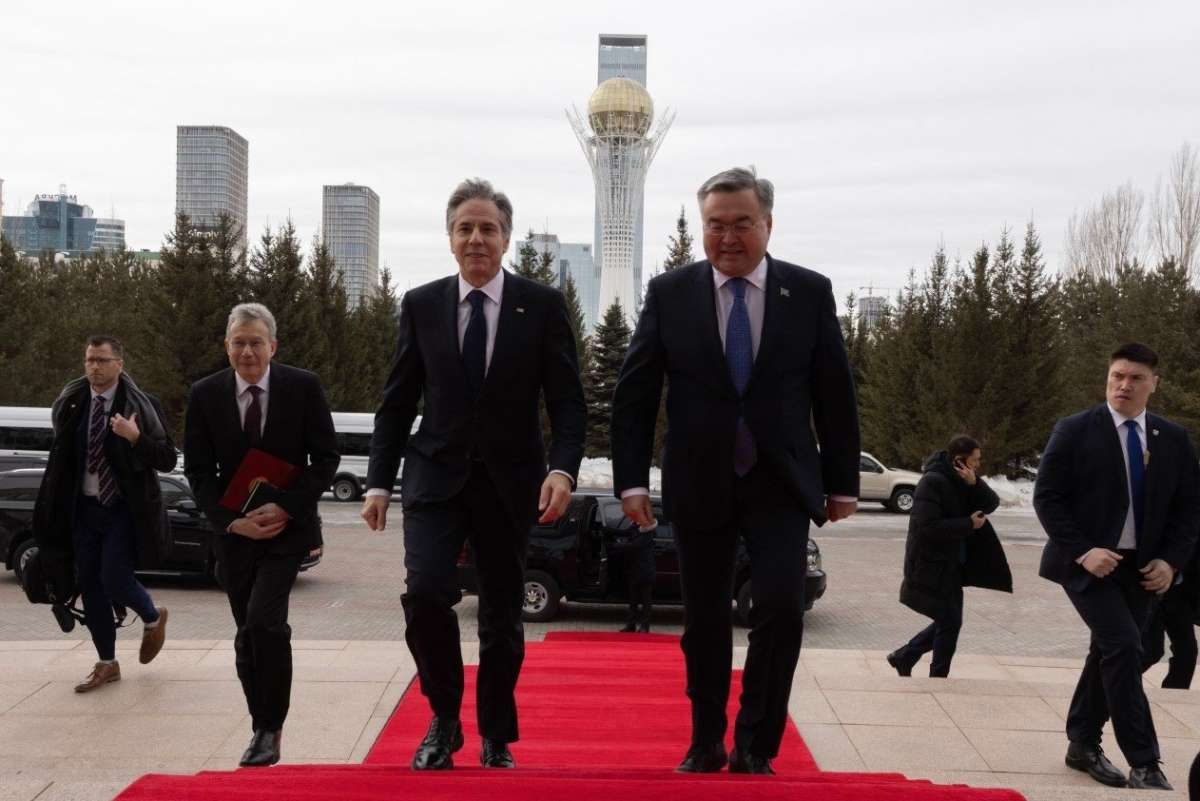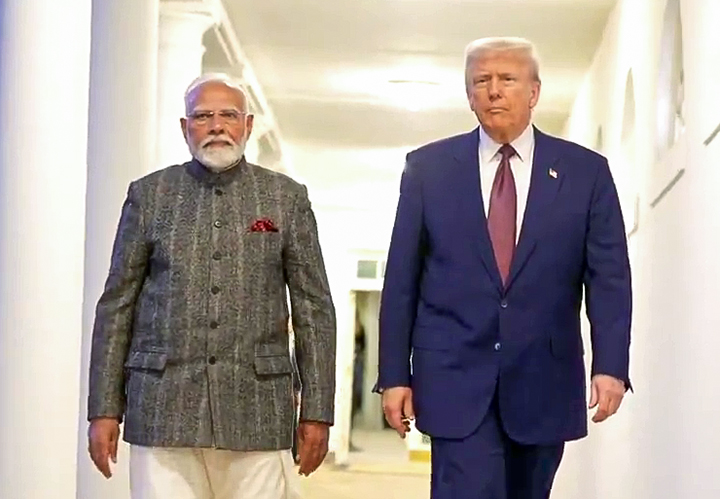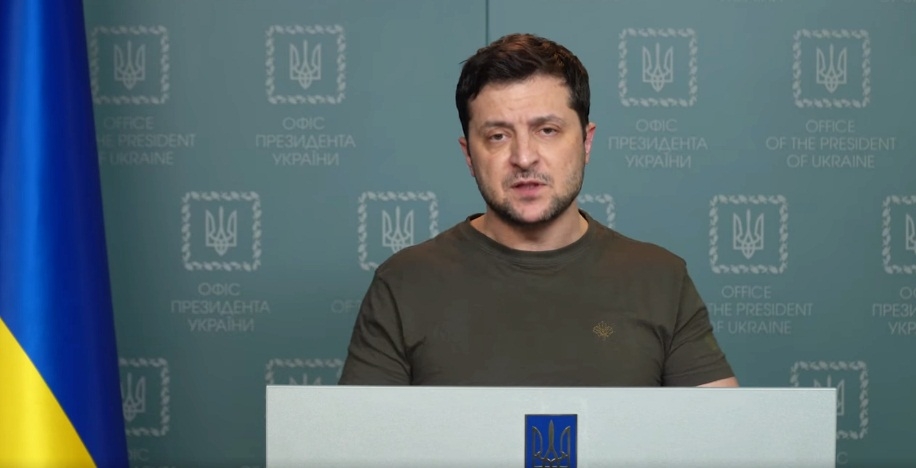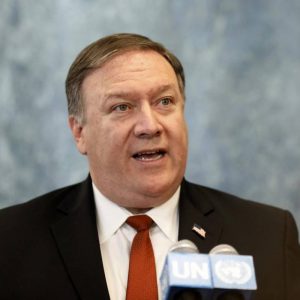Blinken’s visit to Astana and later this week to Tashkent, the capital of Uzbekistan, mark his first trip to Central Asia as secretary of state…reports Asian Lite News
Secretary of State Antony Blinken visited Kazakhstan on Tuesday for a series of meetings with top diplomats of Central Asian nations as tensions soar over Russia’s war in Ukraine.
Blinken sat down for talks with Kazakh Foreign Minister Mukhtar Tileuberdi and then with Kazakh President Kassym-Jomart Tokayev. A meeting of the so-called C5+1 group, made up of the U.S. and the former Soviet republics of Kazakhstan, Kyrgyzstan, Tajikistan, Turkmenistan and Uzbekistan, was expected to follow.
At that meeting, Blinken will stress the U.S. “commitment to the independence, sovereignty, and territorial integrity of Central Asian countries,” the State Department said in a statement that mirrors the wording it has been using to support Ukraine in its war against Russia.
Blinken’s visit to Astana and later this week to Tashkent, the capital of Uzbekistan, mark his first trip to Central Asia as secretary of state. It comes just days after the anniversary of Moscow’s invasion of Ukraine, which has rattled the region.
None of the five former Soviet republics in Central Asia, traditionally viewed as part of the Kremlin’s sphere of influence, publicly backed the attack.
Kazakhstan welcomed tens of thousands of Russians fleeing from the military call-up last fall. Kazakh President Kassym-Jomart Tokayev spoke on the phone with Ukrainian President Volodymyr Zelenskyy three times since Russian troops rolled into Ukraine last February, calling for a diplomatic resolution of the conflict in accordance “with the U.N. charter and commonly accepted norms of the international law.”
However, all five Central Asian republics, along with India, which Blinken will visit next, abstained in a vote to condemn the invasion last week at the U.N. General Assembly on the first anniversary of the war.
U.S. officials hope that Blinken can convince the Central Asian nations that Russia’s invasion of Ukraine is a threat to them.
The U.S. has for decades sought without great success to wean the former Soviet nations of the region from Moscow’s influence. Some, notably Uzbekistan and Tajikistan, assisted the U.S. logistically during its 20-year conflict in Afghanistan.
Blinken earlier told Foreign Minister Mukhtar Tileuberdi that Washington supports the sovereignty, independence and territorial integrity of Kazakhstan, which won independence from Moscow in 1991.
“Sometimes we just say those words, but they actually have real meaning and of course we know in this particular time they have even more resonance than usual,” Blinken said in reference to Russia’s invasion of Ukraine, also a former Soviet republic.
Russia and Kazakhstan share the world’s longest continuous land border, prompting concern among some Kazakhs about the security of a country with the second-biggest ethnic Russian population among ex-Soviet republics after Ukraine.
Central Asia’s place on the geopolitical map was reinforced by a vote at the United Nations on the February 24 anniversary of the invasion that called for an immediate end to Russia’s war and the removal of Russian forces from Ukrainian territory.
Kazakhstan, Kyrgyzstan, Tajikistan, and Uzbekistan were among just 32 countries that abstained from voting on the resolution that passed with 141 countries voting in favor and seven countries — including China, Belarus, and Russia — voting against.
Turkmenistan, recognized as a neutral country, did not vote at all.
Two days after the vote, the Kazakh Foreign Ministry described as “worthy of support” a position paper on Ukraine published by Moscow’s partner, Beijing, that U.S. President Joe Biden had earlier doubted “would be beneficial to anyone except Russia” if it was implemented.
Although China’s document paid lip service to the territorial integrity of all states, it refrained from criticism of Russia and advocated the end of Western-led sanctions against its ally.
Kazakhstan has also criticized sanctions independently, while Astana’s pledge to nevertheless uphold them has seen several Russian politicians and public figures shower its leadership with contempt and — in some cases — threats of a Ukraine-style invasion.
“When we talk about the neutral position of Central Asian countries, it is not really neutrality but just the same old fear of Russia,” said Anvar Nozirov, an analyst based in Tashkent, the Uzbek capital.
Yet Nozirov argued that Washington can still play a necessary role in the region despite Moscow and Beijing’s dominance.
“There are many problems in the region that are only intensifying, whether it is climate change, water shortages, energy shortages and, of course, Afghanistan under the Taliban again,” Nozirov said, calling the withdrawal of coalition forces from the country that borders Tajikistan, Turkmenistan, and Uzbekistan “disastrous.”
“Russia has never fully solved these problems, and China’s solutions are mostly limited to its business interests. Central Asia is still isolated in many ways, and the war launched by Russia has only made new problems for citizens of our countries,” Nozirov said.
ALSO READ: Quad, China top on Blinken’s India agenda














